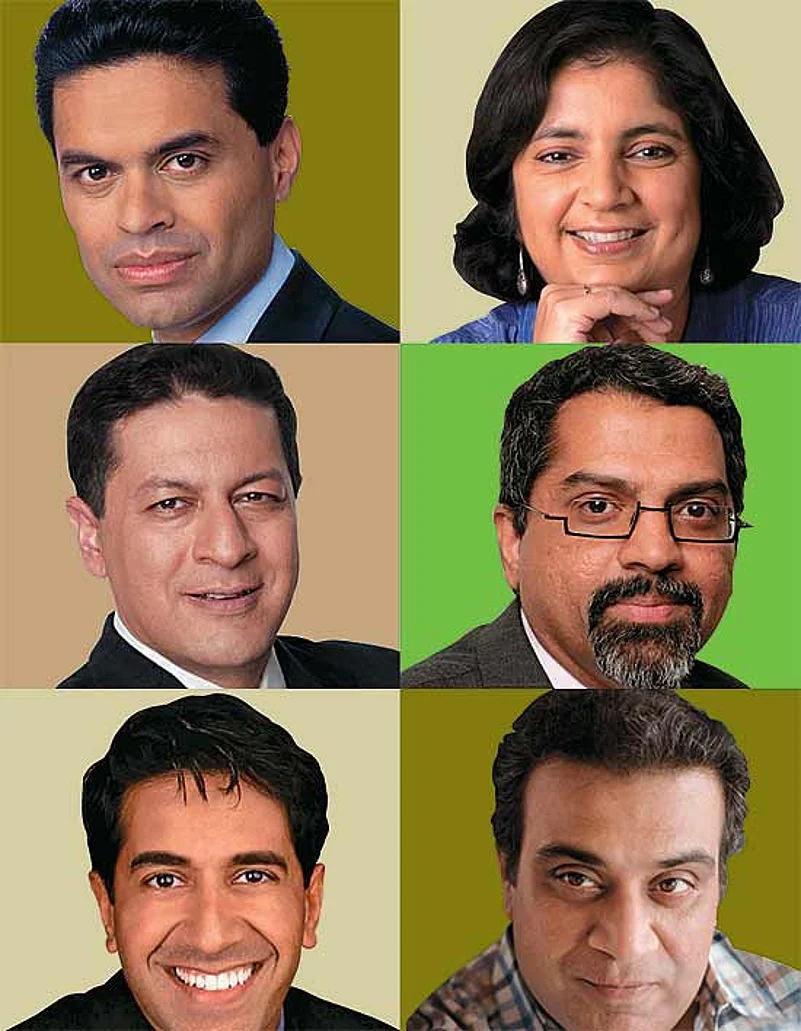Not so very long ago, the only prominent Indian on American TV was a fictional one. Apu Nahasapeemapetilon, an immigrant from India who spoke with an exaggerated ‘Indian accent’, was the proprietor of Kwik-E-Mart on the long-running animated US sitcom The Simpsons. Now, one can’t help but notice the proliferation of people of Indian origin in all streams of media across America—television, radio and print. From CNN’s Fareed Zakaria and Dr Sanjay Gupta; to Raju Narisetti, managing editor at the Washington Post and Tunku Varadarajan, editor of Newsweek International; to Madhulika Sikka, executive producer of NPR’s Morning Edition and Nik Deogun, senior vice president and editor-in-chief at CNBC, the list goes on and on. “In just these names, you are talking about some of the most important media posts in America,” says Sreenath Sreenivasan, digital media professor at Columbia Journalism School in New York.
Sreenivasan co-founded the South Asian Journalists Association (SAJA) in 1994. At the time, he estimates, there were only around two dozen journalists of Indian origin in newsrooms across America. “Fast-forward to today and I lose count at about 1,000,” he says. Indian journalists, in particular, shone during the Iraq war coverage. Many of the finest have studied in American journalism schools like Columbia and Stanford.
The proliferation of Indian-origin journalists across the US is a classic second-generation phenomenon in a prosperous, educated and increasingly integrated immigrant community, explains Varadarajan of Newsweek International. “The first generation performs to type: men and women covet professions that offer a quick route to upward mobility and social and economic success—like the medical profession. Their children, raised with material comfort and a healthy dose of American iconoclasm, have been liberated from the need to be conventional,” he says.
While people of Indian origin have gained fame through their work in front of the camera and through their bylines, they have also acheived similar success running the show from behind the scenes. Madhulika Sikka is the executive producer of Morning Edition on NPR. As a young girl growing up in England, Sikka was exposed to a steady diet of the BBC. “It offered me a window to the world,” she said, adding, “I thought it would be really terrific to do something like that.” But she had few role models of Indian origin. “When I was growing up, there was nobody I could look to in this business who looked like me or had a name like mine,” says Sikka.
As a younger generation flirts with the idea of a career in journalism, the one piece of advice offered by those who have gone on before them is this: if you are looking to make money, journalism is not the career for you. You really have to have a passion for it. New forms of media are now challenging the traditional ones. Those in college face the interesting challenge of marrying new technology with new media. Sikka says the profession is at a real moment of fundamental change. “You don’t know what direction it’s going to go, although I am optimistic about it,” she said.


























